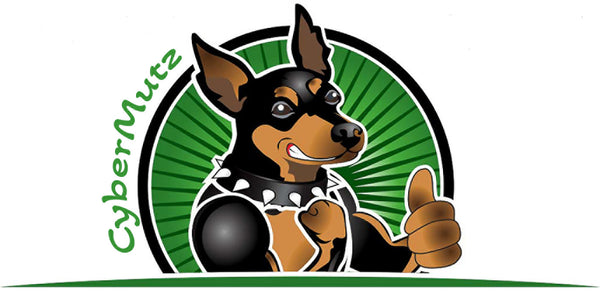
Dog Gut Health 101: Why Probiotics Matter More Than You Think
Share
Dog Gut Health 101: Why Probiotics Matter More Than You Think
When it comes to your dog’s health, most pet parents think about food quality, vaccinations, and regular vet visits. But there’s a hidden hero working 24/7 inside your pup: their gut microbiome. And at the heart of it? Probiotics—those tiny, powerful organisms that can make a massive difference in your dog’s overall well-being.
🧬 What Are Probiotics, Exactly?
Probiotics are beneficial bacteria that naturally live in your dog’s gastrointestinal tract. They help maintain a healthy balance in the gut, support digestion, and play a crucial role in immune function.
When this balance is disrupted—by antibiotics, poor diet, stress, or illness—your dog’s health can suffer.
🐾 Why Gut Health Is a Big Deal
A healthy gut supports:
-
Efficient digestion
-
Nutrient absorption
-
Strong immunity
-
Healthy skin and coat
-
Mood and behavior stability
That’s right—your dog’s gut and brain are connected through the gut-brain axis, meaning digestive imbalance can even affect your pup’s behavior or anxiety levels.
🐕🦺 Signs Your Dog May Need Probiotics
Watch for symptoms like:
-
Chronic or recurring diarrhea
-
Constipation
-
Gas or bloating
-
Skin issues or excessive scratching
-
Bad breath
-
Frequent infections
-
Anxiety or stress responses
While these can have many causes, gut imbalance is often at the root—and probiotics can help.
🍽️ Natural Ways to Support Your Dog’s Gut
1.
Probiotic Supplements
Look for formulas made specifically for dogs. The best options include strains like:
-
Lactobacillus acidophilus
-
Bifidobacterium animalis
-
Enterococcus faecium
Choose a brand with transparent labeling and third-party testing.
2.
Probiotic-Rich Foods (Dog-Friendly)
Some whole foods may provide mild probiotic support:
-
Plain, unsweetened yogurt (in small amounts)
-
Goat’s milk (pasteurized and pet-safe)
-
Fermented vegetables (only safe, dog-friendly options)
Always introduce new foods slowly and consult your vet.
3.
Prebiotics Matter Too
Prebiotics are the “food” for probiotics—non-digestible fibers that help healthy bacteria grow. Sources include:
-
Pumpkin
-
Chicory root
-
Bananas (in moderation)
⚖️ When Should You Give Your Dog Probiotics?
Probiotics are especially helpful:
-
After antibiotics
-
During times of stress (travel, boarding, vet visits)
-
When switching diets
-
As part of daily health maintenance
🐶 Final Thoughts
Probiotics aren’t just a trend—they’re an essential part of keeping your dog’s gut (and entire body) in balance. Whether you’re dealing with digestive issues or simply want to support long-term health, probiotics can be a smart addition to your dog’s routine.
